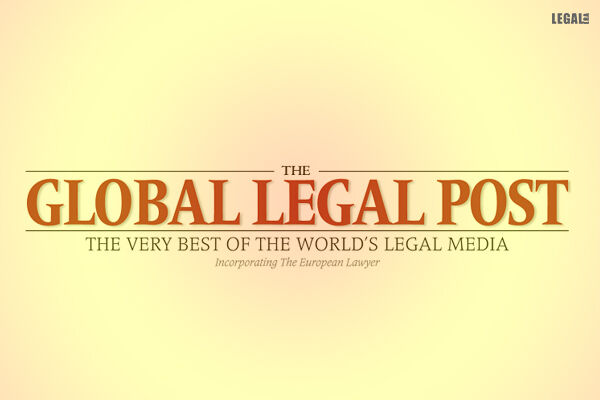
The Global Legal Post introduces online luxury law comparative guide
Law Over Borders guide helps international brands steer laws in collection of key jurisdictions
The Global Legal Post launches a comparative jurisdictional guide to the fast-moving world of luxury law.
Under the ‘Law Over Borders’ brand, the online source is jointly edited by Fabrizio Jacobacci, the senior founding partner of Turin-based Jacobacci Abril and Alan Behr, chairman of the fashion and luxury practice at New York’s Phillips Nizer.
Impacting on the brands in key jurisdictions across worldwide, the guide provides answers and insight to the laws. Sensibly selected by the editors, it is written by the experts of the luxury sector.
There are sections on trademark and copyright law; design; rights surrounding privacy, publicity and personal endorsement; product placement and the protection of corporate image and reputation. Jurisdictions covered include Brazil, China, France, Germany, India, Japan, Russia, South Korea, Spain, Taiwan and Turkey.
The easy-to-use digital format allows readers to quickly assess the legal frameworks of different jurisdictions by comparing contributing authors’ answers to a series of questions carefully framed to cover the key legal issues.
‘In our society, luxury goods function as status symbols, they define class, social distinction and even personal beliefs and values,’ writes Jacobacci in the Italy chapter. ‘Luxury companies utilise their trademarks as symbols to signal status and market their products or services. It is not a surprise, hence, that trademarks have become their most valuable assets and no efforts are spared to constantly expand their scope of protection, often by testing the law in an attempt to stretch it to its furthest limits.’
One emerging trend tackled by the authors is influencer marketing. Behr and the co-author of the US chapter, Tod M. Melgar, chair of Phillips Nizer’s patent law practice group, highlight the prevalence of morals clauses in agreements with influencers that give a brand ‘the right to push the “eject” button immediately. Without notice for any reason, it believes apt for protecting its reputation’.
‘In the current environment in the United States where the #MeToo movement has risen to have such a powerful public presence,” they explained. The recently or habitually famous can be “cancelled” (the electronic-age equivalent of “shunning”), for making statements that are potentially dangerous to a brand. Even if thoughtfully expressed or factually correct, luxury brands typically maintain on morals clauses that give them broad flexibility.’
The online guide will be regularly updated by its contributors, while a book featuring additional content will be launched at the market-leading Luxury Law Summit Europe, taking place in London on 20th June.
The full list of the Luxury Law guide’s jurisdictions and their authors
Belgium
Moana Colaneri
Beyond Law Firm
Brazil
Luiz Edgard Montaury Pimenta and Marianna Furtado de Mendonça
Montaury Pimenta, Machado & Vieira de Mello
China
Yunze Lian and Rebecca Liu
Jadong IP Law Firm
Cyprus
Maria Hinni, Nasos Kafantaris, Ioanna Martidi and George Tashev
A.G. Paphitis & Co
Czechia
Michael Feuerstein and Michal Havlík
Všetečka Zelený Švorčík & Partners
France
Sophie Marc
Santarelli
Germany
Wiebke Baars
Taylor Wessing
India
Dhruv Anand, Pravin Anand, Kavya Mammen, Udita M Patro and Sampurnaa Sanyal
Rajeshwari & Associates
Italy
Fabrizio Jacobacci
Studio Legale Jacobacci & Associati
Japan
Koichi Nakatani
Momo-o, Matsuo & Namba
Netherlands
Tjeerd Overdijk, Nadine Reijnders – Wiersma and Herwin Roerdink
Vondst Advocaten
South Korea
Won Joong Kim and Dae Hyun Seo
Kim & Chang
Taiwan
Crystal J Chen and Nick J.C. Lan
Tsai, Lee & Chen
Turkey
Yasemin Aktas and Özlem Futman
Ofo Ventura Intellectual Property and Litigation
United Kingdom
Rosie Burbidge
Gunnercooke
United States
Alan Behr and Tod M. Melgar
Phillips Nizer